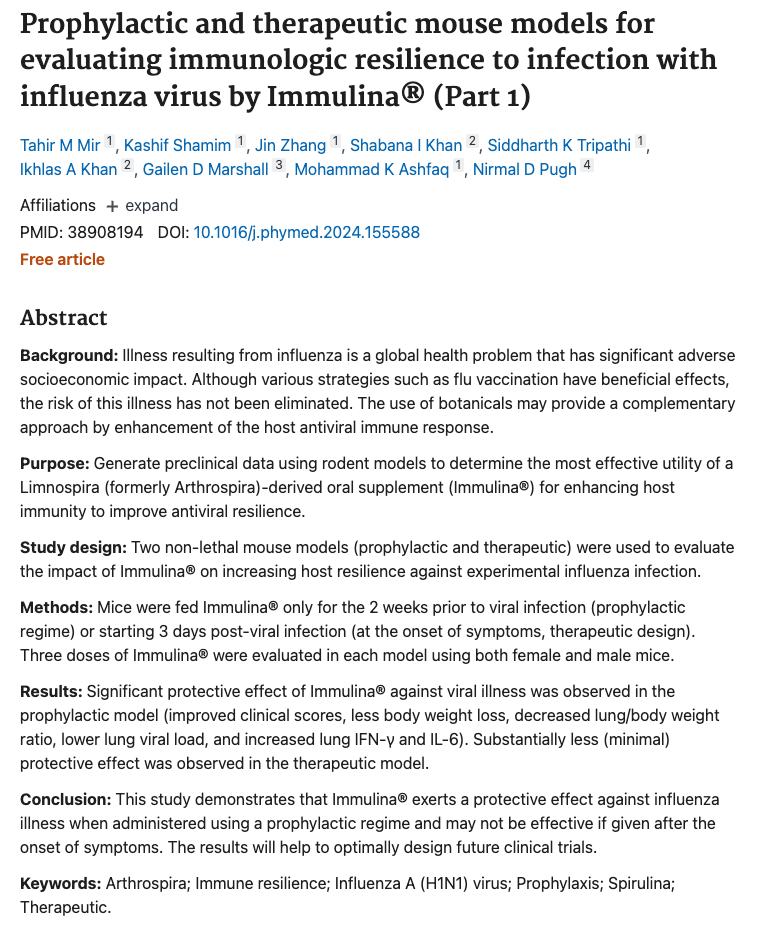Research Interests
Drug discovery, Molecular biology, Proteomics, Microscopy, Ecology
Biography
The rise of multi-drug resistant microbes continuously drives us to discover new and effective ways to combat them. There is nothing better than finding solutions in natural resources, which is what has motivated me to pursue natural product research. My core research interests focus on evaluating the benefits of natural compounds against human pathogens, whether they be bacteria, fungi, or viruses. Additionally, I am passionate about replacing synthetic food preservatives with natural compounds to enhance human health and safety. A prime example is Immulina®, an immune modulator derived from a natural source. Not only can it boost immunity, but it can also help prevent and alleviate illnesses caused by influenza. A key goal of my research is to use molecular biological techniques to explore natural compounds and their mechanisms of action, aiming to treat human pathogens in an eco-friendlier manner.
Societies & Journals
-
Member of American Society of Microbiology (ASM) since 2022
-
Member of CARBON program NIH since 2023
-
Reviewer editorial board member of MDPI journals such as “Pharmacy, Biology, Applied Microbiology, Nutrients, Bacteria, International Journal of Molecular Sciences, Animals, Antibiotics, Biosensors, Molecules and Cancers” since 2022
-
Reviewer editorial board member of Wiley journals such as “Journal of food quality, The Scientific World Journal, Evidence Based Complementary and Alternate Medicine, Advance Gut and Microbiome Research and International Journal of Genomics” since 2022
-
Reviewer editorial board member of Springer nature in “BMC Complementary Medicine and Therapies” since 2023
-
Reviewer editorial board member of Elsevier journal in “Science of The Total Environment” since 2024
-
Reviewer editorial board member of Frontiers in “Frontiers of Microbiology” since 2024
Publications

Kashif Shamim, Tahir M. Mir, Jin Zhang, Shabana I. Khan, Siddharth K. Tripathi, Ikhlas A. Khan, Gailen D. Marshall, Mohammad K. Ashfaq, and Nirmal D. Pugh. 2024. Prophylactic and therapeutic mouse models for evaluating immunologic resilience to infection with influenza virus by Immulina® (Part 1). Phytomedicine 132:155588.
Kashif Shamim, Tahir M. Mir, Jin Zhang, Shabana I. Khan, Siddharth K. Tripathi, Ikhlas A. Khan, Gailen D. Marshall, Mohammad K. Ashfaq, and Nirmal D. Pugh. 2024. Immulina® mitigates the development of illness when administered during the prodromal period of influenza viral infection in mice (Part 2). Phytomedicine 132:155778.
Kashif Shamim, Jaya Sharma, Milind Mutnale, Santosh Kumar Dubey, and Sajiya Mujawar. 2018. Characterization of a metagenomic serine metalloprotease and molecular docking studies. Process Biochemistry 71:69-75.
Jaya Sharma, Kashif Shamim and Santosh Kumar Dubey. 2018. Phosphatase mediated bioprecipitation of lead as pyromorphite by Achromobacter xylosoxidans. Journal of Environmental Management.
Jaya Sharma, Kashif Shamim, Santosh Kumar Dubey and Ram Murti Meena. 2017. Metallothionein assisted periplasmic lead sequestration as lead sulfite by Providencia vermicola strain SJ2A. Science of The Total Environment.
Education
Ph.D. Microbiology, Goa University (2018)
